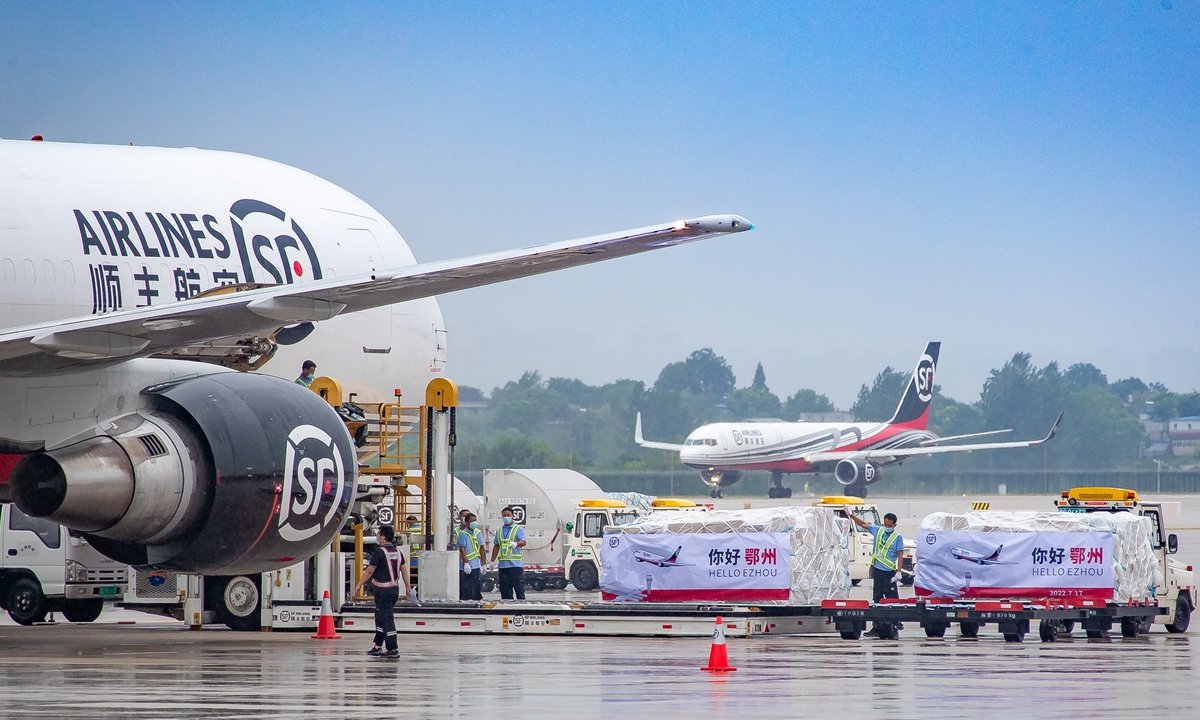
Ground service crew unload cargo from a freight aircraft at the Ezhou Huahu International Airpot in Central China's Hubei Province on July 17, 2022. File photo: VCG
Wednesday marked the first anniversary of Ezhou Huahu International Airport being approved to conduct international operations. As Asia's first all-cargo hub airport, it has launched 38 international freight routes, linking five continents through its expanding logistics network.
Since its launch, the cargo airport in Central China's Hubei Province has connected 42 destinations in 28 countries and regions in Europe, the Americas, Asia and Africa, including key hubs in Belt and Road Initiative partner countries, reported China Central Television.
To date, the airport has processed 8,795 inbound and outbound international cargo flights and handled 338,400 tons of import and export cargo.
The airport handles a diverse range of cargo, including general import-export goods, mail, express parcels and cross-border e-commerce shipments, according to a local customs official. Currently, the airport's major exports consist of electronics like computers and smartphones, as well as daily consumer goods, while major imports are fresh fruits, seafood and vehicle parts, among others, said the official.
On March 6, 2025, SF Airlines launched a new cargo route linking Ezhou with Bangalore, India, expanding trade and logistics connectivity between the two regions, the Xinhua News Agency reported.
On March 19, 2024, the State Council approved the airport to conduct international operations, making it the fourth aviation port in Hubei to provide international services and the first all-cargo hub airport in China, Xinhua reported.
China plans to expand international cargo routes linking major aviation hubs in Beijing, Shanghai and Guangzhou, alongside strengthening Ezhou's role as a specialized cargo hub, according to a guideline issued by the General Administration of Customs, National Immigration Administration and Civil Aviation Administration of China (CAAC) in February this year. Airlines are encouraged to increase dedicated cargo capacity, introduce more regular all-cargo flights, and enhance global air freight connectivity, according to the guideline.
Data from the CAAC showed that China handled 8.98 million tons of cargo and mail in 2024, a year-on-year increase of 22.1 percent and a rise of 19.3 percent compared with 2019.
Global Times




